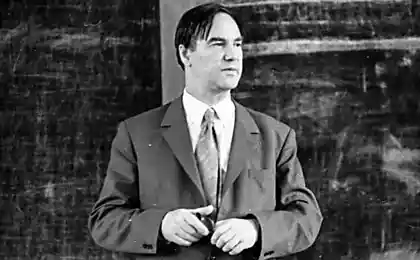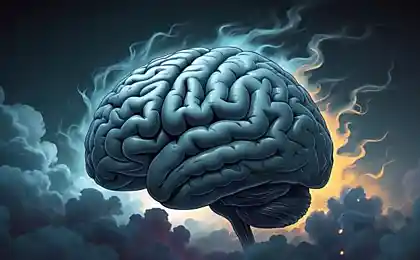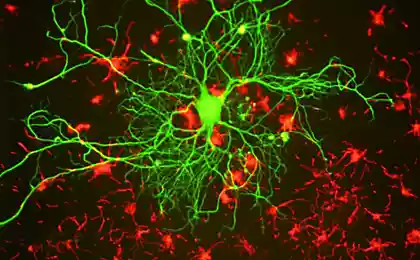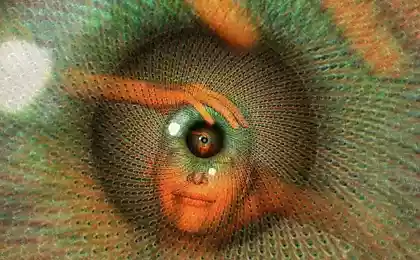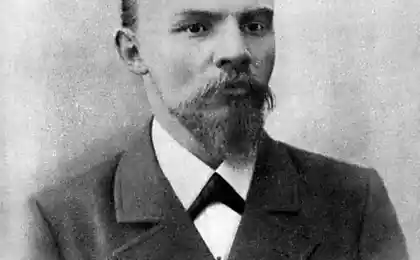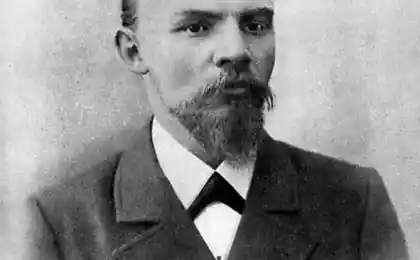708
5 books about the brain and consciousness
Ninety three million three hundred four thousand five hundred sixty six
What to read about the structure, functioning of the brain and its capabilities? Can you trust your brain? How to interact the mind and the brain, and how his work can be seen in the context of neuroscience? Important work in this area in the recommended set of books. Frith C. Brain and soul. As nervous activity forms our private world. — M.: Corpus, Astrel, 2012 This is one of the rare books in the Russian language, which professionally and affordably tells the story of how the mental world. The world of our sensations, feelings and perceptions. The author, a famous British neuroscientist and neuropsychologist, examining the details of the anatomical device of the human brain, talks about how originate, develop and live as mental images and ideas about the real physical world. In his narrative, the author uses data obtained in the most recent publications, changes in the activity of different surface and deep structures of the brain during a particular behavioral action. Constructs and landscapes of these internal worlds of the person, it turns out, does not have to be copies of external realities. On the contrary, it is fully the fruit of the creativity of the owner of the brain — creativity, not divorced from reality, but only fills the gaps in her knowledge. Our inner world, in the opinion of the author of the book, almost more rich than the world outside because it complements the range of possible implementations and of spiritual quest.
Ramachandran V. S. the Birth of the mind. Mysteries of our consciousness. — M.: Olympus-business, 2006 Only two or three lines assigns the author of the description actually any ailment or injury of a patient, and then the reader goes with the author in a leisurely study of the construction of the brain and the origins of mind. Here one patient with missing right limb, as soon as the doctor touched his left cheek, then itching thumb, which is not. He had only the doctor to touch the cheek just below the previous location, as scratch want already the index finger of the same missing arm. Ramachadran, as if wondering to himself, investigating the cause of this phenomenon, and the reader suddenly notices that he now knows not only about the phenomenon, not only about its causes, but also about the very structure of the brain, and about how all this "mechanics" works.
"In search of memory", "Brain and soul"Interview with Peter Petrov, translator of books on neuroscience
How we perceive the world around us and where in the process errors occur? Are there any universal criteria of artistic taste, or it all depends on cultural differences and national characteristics of the people? Why do some people while sounding specific tones feel a certain color? As painted may seem and numbers printed on the paper the same ink? And why such a confusion of modalities of sensations, synesthesia, has been preserved in human evolution? What is this favorite author of mirror neurons, activated in the brain only in some private action but also when a similar action of another person? Finally, quite a philosophical question: whether on its own people, for example, Flex your finger when you deliberately want to do it. It turns out that for a second before the moment a person decides to bend the finger, the brain has calculated and independently decided on flexion of the finger. So we secretly in command of our brain, not our own consciousness! So quietly, Vilayanur Ramachandran does not just tell us about the structure and working of the brain, about the mysteries of the mind, but leads to the conclusion that his favorite subject, neuroscience, is a storehouse of philosophy.
Spitzer M. the Whole truth about the brain. Popular neuroscience. — Moscow: AST, Astrel, harvest, 2008
The discerning reader, having read dozens of pages can call this book not very interesting. But here you need to show some patience. Indeed, the book does not have the density of information flow, that aura of mystery in the descriptions of the brain and its activities, not even sophisticated theories that usually attracts attention to scientific and popular works. But there is a leisurely exposition of all sorts of different stories about cases of medical practices that have known a psychiatrist and a neurologist, the wonderful Dr. Manfred Spitzer. In the book, the author comparatively little attention to the actual medical aspects of a case, but fully reveals its profound meaning and significance from the point of view of the structure of the brain, the content of mental processes and errors domestic interpretations of brain activity. We can say that the book of Manfred – a collection of all kinds of stories that in one way or another shed light on the mechanisms of the brain and mind. Either direct observation of the author, or the fruits of random thoughts, conversations with friends. "The truth about brains" is a very balanced and considered from all sides of the story about the different aspects of human brain activity, which, on the one hand, it would seem, is absolutely clear at school, and on the other hand, if you think about it, are quite mysterious, revealing the secret life of the brain. Somewhere after reading the first third of the book it becomes apparent that the unhurried pace of the narrative by the author of his story corresponds to the speed of natural perception of this topic and the only acceptable for the thoughtful reader. It becomes obvious that infants begin to adapt to the external environment, while still in the womb; chocolate, of course, positively affects brain activity that a healthy sex itself controls the levels of the sex hormone testosterone, not Vice versa. By the end of the book the reader is surprised to find that he became the owner of not just the masses of new knowledge about the brain, but learned to appreciate and to interpret any new information or their own observations about how the human brain in the context of their own experiences and when viewed from the side.
Doug N. The plasticity of the brain. Amazing facts about how thoughts can change the structure and function of our brain. — M.: EKSMO, 2009 FAQ: Reverse design of the brain 7 facts about the direction in neuroscience, trying to understand and artificially recreate the structure of the brain
The author is a strange man. Not only that, he is a doctor of medicine, psychiatrist, psychoanalyst and Professor at Columbia University in new York, and Department of psychiatry, University of Toronto – he is also a talented essayist, poet, and a great popularizer of brain science. His book "brain Plasticity" — a rare example of a combination of scientific rigor of the most incredible hypotheses, medical care description of clinical cases and verified the dramatic presentation. And all this for the sake of promoting the brilliant idea that the brain can change its own structure and function through the thoughts and actions of man. Norman Doidge revolution considers understanding of the brain as substrate of our behavior and intelligence, constantly modifitsiruyushchee depending on the cognitive needs of the body. "This revolution, in connection with the neuroplasticity of the brain, writes Norman Doidge, — cannot but influence our understanding of how love, sex, grief, relationships with people, teaching, tendency, culture, technology and psychotherapies change our brains". Indeed, a new understanding of the brain structure and the content of which is constantly changing in favor of the current queries of intelligence, cannot fail to affect not only biological and medical research, but also human, social and natural Sciences, which in one degree or another are dealing with human nature. Bright, affordable, always with intrigue Norman Doidge tells about outstanding scientists, proving the plasticity of the brain and the patients, whose life has changed much for the better due to the fact that their victim from injury the brain itself has evolved so much that its healthy parts have started to work in a completely new way, compensating for a failed brain mechanisms. The book of Norman Doidge is an undeniable sense of optimism, it gives the belief that the mind and will of man can not only improve the brain of a healthy person, but to force him to beat any ailment.
Amott, S., Wong S. the Mysteries of our brain, or Why smart people do stupid things. — M.: EKSMO, 2009
Sandra Aamodt and Sam Wong is well known for his work in the field of studies of the mechanisms of the human brain in health and disease. Perhaps therefore a popular science book about how the brain works, contains a minimum of digressions in the books of anatomy and physiology, but full of fascinating information and facts about the brain that explains our behavior, our abilities and causes some brain diseases. The book is a sort of invitation to explore your own brain. It is called in the original version of "Welcome to your brain". In fact, the reader will not be deceived. In six large sections, he will know whether you can trust your brain, how are feeling and how they are misleading, why don't all become geeks, and is there a chance to remain in full mind to a great age, why do we need emotions and whether they are relevant to the state of happiness that is more important, and more important: heredity or upbringing — and finally, as far as we are rational, reasonable and as far as our consciousness is subject to the action of pharmacological and psychological effects? All this and many other Aamodt Sandra and Sam Wang talk in an accessible and engaging way, and most importantly, with the knowledge of professionals and the enthusiasm of the guides, leading my first tour group. Book Sandra Aamodt and Sam Wong useful that justifies the stupidity of even the smartest people that this is due to the appropriate design and content of their brain.
Author: Alexander Kaplan published
P. S. And remember, only by changing their consumption — together we change the world! ©
Source: postnauka.ru/faq/42329
Germanium will take the place of silicon in electronics
The art of keeping balance in the development of all aspects of your life








